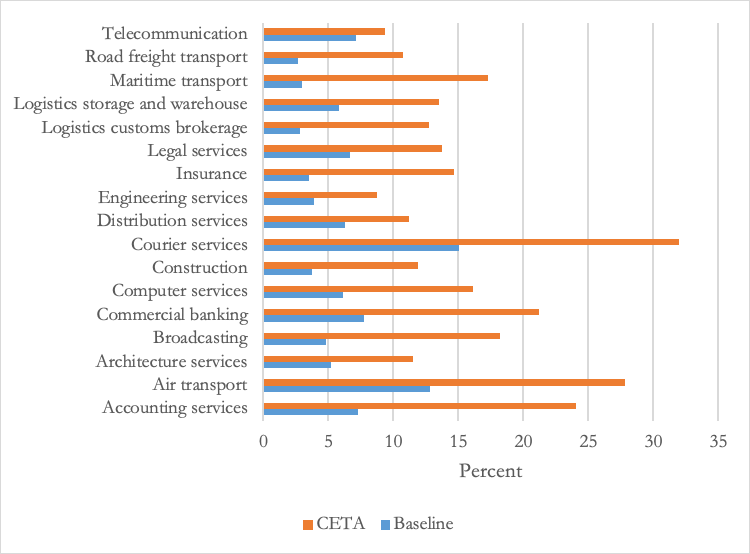1. Membership of the EU Single Market confers much more favorable market access on British services exporters relative to non-EU. The tax equivalent of regulatory barriers faced by British exporters of computer services in the EU is 2%, non-EU is 33%





